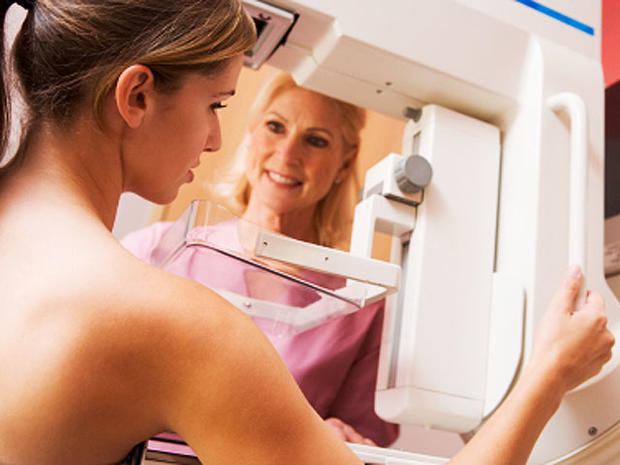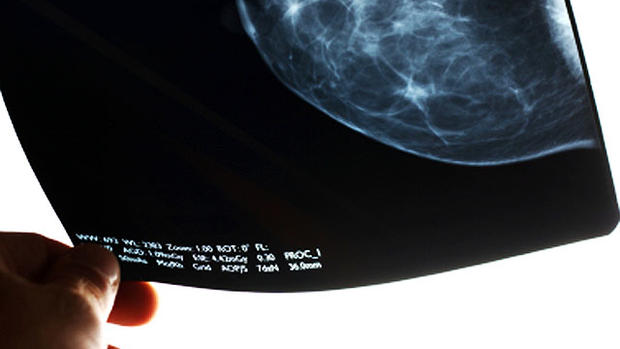Breast Cancer Shocker: Only Half of Women Get Mammograms
(CBS/AP) Breast cancer screening saves lives, but only if women get screened. And only about half of women age 40 and older are getting annual mammograms as recommended by leading cancer organizations, according to a new study of insurance claims.
What's going on here? Apparently, women talk a good game about mammography but don't always follow through.
"We all support many things - fast food isn't what we should eat for dinner every night - but that isn't what we do," said Dr. Milayna Subar of Medco Health Solutions Inc., which manages benefits for many large insurers.
She did the study, using records on more than 1.5 million women, and reported results Thursday at a breast cancer conference.
The finding is disturbing, said Dr. Judy Garber of Dana-Farber Cancer Institute in Boston. "Here's an insured population where cost is not a barrier," and yet many women are not getting tested.
Rates of screening are likely even lower among women without insurance, though government programs pay for mammograms for many women who lack such coverage.
Mammograms are X-rays of the breast that can reveal tumors when they're too small to be felt. But they also raise many false alarms, leading to worry, expense and overtreatment. How often and when women should get mammograms has long been controversial.
In November 2009, the U.S. Preventive Services Task Force said women in their 40s at average risk for cancer do not need mammograms and that women 50 and older need them only every two years. Many groups, including the American Cancer Society, still advise annual mammograms starting at 40.
Doctors will not be surprised by these results, said Dr. Peter Ravdin of the University of Texas Health Science Center at San Antonio, one of the organizers of the cancer conference. Women forget or lose track of when they last had a mammogram, and that's one of the downsides of advice not to go every year, he said. Some may even lie when asked how often they go.
"There's both a conscious and mostly unconscious desire to please the person asking that question," because most women know they should be getting one, Ravdin said.
One strong advocate of regular screening is Dr. Marisa Weiss, a 51-year-old Philadelphia breast cancer specialist who was diagnosed in April with breast cancer found through a routine mammogram.
"It was a very favorable diagnosis and I feel very lucky about that. I was a true beneficiary of early detection," she said, adding that if she'd followed advice to get screened just every two years, it could have meant "a real difference in my prognosis."

